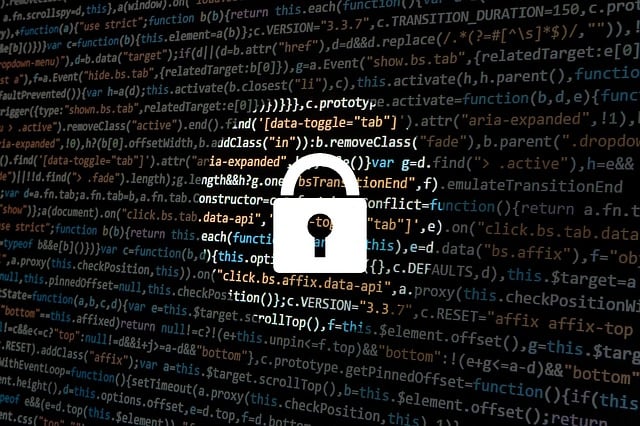5 Business Security Strategies to Protect Your Company Data

Customers overwhelmingly agree: they prefer NOT to purchase from a company that they don't trust with their data. Now, in 2024, the business value of data is more important than ever. Data breaches continue to rise, year-on-year, with no end in sight. Given that cybercriminals have many more attack surfaces at their disposal – thanks to remote work – IT security is thrust into the spotlight.
The proverbial low-hanging fruit for cybercriminals presents the perfect storm for mass infiltrations, data theft, and compromised security systems. We know that the vast majority of malicious data breaches – caused by threat vectors – emanate from the following primary sources: third-party software abilities, cloud configuration errors, phishing, compromised security credentials, compromised physical security, and myriad other minor areas.
A search for business security strategies to protect your company data reveals a multitude of possibilities. Some security strategies are better suited to your organization than others, depending on their applicability to your specific set of preferences, requirements, and predicament.
Strategies to Protect Your Company Data

IT consultants routinely scour the literature in search of the best practice methodology for safe and secure data. We uncovered the following five business security strategies to protect your company data. While many other strategies exist, these five strategies tend to top the charts in terms of security, practicality, and common sense.
Ironclad Antivirus Software and Spyware Protection Systems
Companies have a multitude of choices when it comes to AV software and spyware protection. It's disingenuous to recommend one particular product or system over another, given the dynamic nature of the antivirus software and spyware protection industry.
However, due diligence is required to ensure that the correct choices are made. Once a selection is undertaken, the product should be installed across all devices, updated, and tailored to expectations.
A large variety of AV software currently exists, including cloud-based solutions for companies around the world. Small and medium-sized businesses must stay abreast of the latest options in terms of security software and anti-malware systems.
This extends to browsing, real-time collaboration, and across all verticals and horizontals. This ensures that the same high standards of excellence in terms of security are maintained, even with third-party vendors and other stakeholders.
Implement and Enforce Regular Backups of Data

Many companies have adopted a lackadaisical approach towards backing up data. This is a major oversight. If a company’s smartphones, mobile devices, computers, and PCs are hacked, tremendous damage can be wrought. Implementing strong mobile security practices can prevent unauthorized access to sensitive data, minimizing risks that arise from vulnerable devices.
It's not simply personal data and financial data at stake; it's the integrity of the entire operation, including history, files, credentials, sensitive information, stakeholder information, etc. The best way to view the seriousness of this threat is to assume that everything on your company's hard drives, cloud storage, and network is wiped clean – how would that impact operations?
Rather than face a doomsday scenario, it's a much simpler alternative to perform regular, secure, cloud-based physical backups of all company files. One such technique involves automatically backing up to the cloud, along with systemwide physical backups of data.
Many companies never need to resort to backups to restore data and other sensitive files. But, like insurance, with backups, it's better to have it and not need it than to need it and not have it.
Emphasizing Developer Empowerment in Software Supply Chain Security
In an era where software supply chain vulnerabilities are increasingly exploited, it's critical to prioritize strategies that secure the supply chain and also empower the developers responsible for building and maintaining it. The rise of sophisticated cyberattacks targeting software supply chains necessitates a shift towards a more proactive and inclusive approach to security.
Recognizing this, an essential strategy involves equipping developers with the knowledge and tools to identify, assess, and mitigate risks throughout the software development lifecycle.
Developer empowerment in software supply chain security focuses on integrating security practices seamlessly into the development process. This approach includes providing comprehensive training on common vulnerabilities, offering access to automated tools for continuous security assessment, and fostering an environment where security and development teams collaborate closely.
By doing so, developers can become the first line of defense against supply chain attacks, capable of identifying and addressing vulnerabilities before they can be exploited.
One solution leverages advanced security solutions like Software Composition Analysis (SCA) and Supply Chain Security. This offering lets developers quickly pinpoint and remediate potentially compromised components and dependencies.
These tools automate the detection of vulnerabilities and facilitate generating and managing a Software Bill of Materials (SBOM). Viewed in perspective, it ensures thorough visibility and control over the software supply chain.
Identify and Monitor Sensitive Data
Companies must understand precisely what type of data they have so that it can be effectively protected. IT security teams are tasked with scanning databanks and preparing comprehensive files on kinds of available data on the cloud or via physical servers. The data can then be categorized according to organizational value.
Susceptible data must be prioritized over low-value data. A well-structured policy must be implemented to ensure that only a high-level security team or officer can designate data classifications.
This ensures accountability, high standards, and limited risk. Only designated individuals should be granted access control to data. This privileged access limits rights to the selected individuals. For example, high-ranking officials in the company can have complete control over the data in terms of assigning permission, deleting, changing, accessing, or storing it. Other forms of control and access include modification, access, access & modification.
Powerful Endpoint Security Systems for Data Protection
Endpoints are an important concept in data security. An endpoint represents a device physically connected to an endpoint on your network. This includes virtual environments, servers, smartphones, tablets, desktops, scanners, printers, POS applications and systems, medical devices, PCs, Macs, etcetera.
Endpoint security is important for many reasons. There are three types of endpoint security systems, notably on-premises, cloud-based, and hybrid.
Endpoint security is important because it enhances overall network security, supports a remote workforce, ensures compliance with company standards, mitigate threats, protect against Ransomware, spyware, malware, viruses, and his powerful bulwark against data breaches.
Typical endpoint security systems perform a multitude of tasks, including risk assessment, endpoint security software, patch management, secure configurations of data and systems, data encryption, user access control, email and Web filtering, behavioral monitoring, incident responses, security awareness training, and updates.